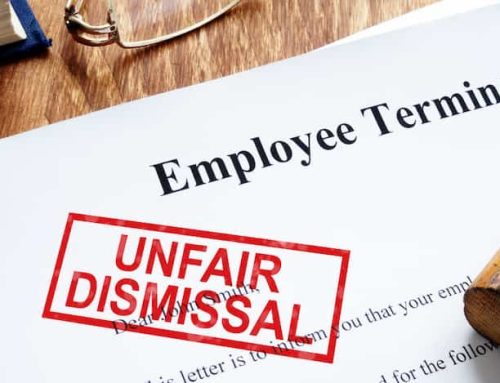OCCUPATIONAL HEALTH AND SAFETY IN TANZANIA
- INTRODUCTION
Occupational health and safety are related with economic activities undertaken in the country. As the economic activities grow and expand, occupational injuries and diseases are more likely to increase among workers in different sectors of economy such as agriculture, mining, transport, and manufacture. The ILO Convention No. 161 on Occupational Health Services, the World Health Organization (WHO) Global Strategy on Occupational Health for All, and the WHO Global Plan of Action for Workers’ Health, 2008-2017, call for the organization of occupational health services to all working people of the world.
In Tanzania there are various laws, rules, and regulations on occupational health and safety formulated and implemented under different ministries, departments, and agencies. Although there are various legislations in this area, issues relating to occupational health and safety are mainly governed by the Occupational Health and Safety Act, 2003 (The Act) and the Employment and Labour Relations Act 2004, and Occupational Safety and Health Authority, which is mandated by the law to ensure compliance of Occupational Health and Safety is the Act.
The Act contains provisions seeking to protect the health and welfare of workers and improve working environment. The Act also requires the employers to provide the employees with protective equipment, by clearly stating that “Where in any factory or workplace, workers are employed in any process involving exposure to any injurious or offensive substance or environment, effective protective equipment shall be provided and maintained by employer for the use of the persons employed including supply of drinking water, washing facilities, first aid facilities, protective equipment and medical Examination.
- Duties of employees imposed under the law
The duty to ensure occupational health and safety is not on the employers only. The act imposes duties and obligations upon employees to ensure their safety. The Act requires the employees to take reasonable care for the health and safety of themselves and any other persons who may be affected by their actions or omissions at work. They also have a duty to cooperate with the employer to enable the duty or requirement imposed by the employer to be performed or complied with.
They have a duty to carry out any lawful order given to them and to obey the health and safety rules and procedures laid down by employer or an authorized person in the interest of health and safety. To report to their employers or health and safety representative any unsafe or unhealthy situation coming to their attention. To report to their employers or health and safety representative any incident or accident which may cause injury to their health as soon as practicable (not later than the end of a shift unless circumstances prevent so).
- Compliance Issues under the Act.
Generally, the act requires employers to be compliant with the following issues to ensure occupational health and safety to employees. The following are the duties imposed to employers.
- To register the factory/workplace/business with the Occupational Health and Safety Authority.
- To conduct regular medical examinations of employees in accordance With the Act;
- To choose health and safety representatives in a workplace with four or more workers.
- To formulate the Occupational Health and Safety policy.
- To conduct Occupational Health and Safety Baseline risk assessment.
- To ensure the workplace has an active safety and Health committee.
- To ensure that the workplace has been inspected by the authority on Occupational Health and Safety matters.
- To ensure the workplace has a trained first aid personnel; and
- To ensure that medical examinations (fitness to work) for employees have been conducted by the Authority.
Employers must make sure that the workplace is safe and healthy and must not allow any worker to do work that is potentially dangerous. The employer shall have the duty to ensure that factories or workplaces are provided and maintained in an accessible position, and there is a supply of fire extinguishing equipment which shall be adequate and suitable having regard to the fire risk involved.
They must inform workers of any possible dangers in the workplace. They must give necessary training to workers who use dangerous machines and materials, to make sure they know the safety precautions. They must reduce any dangers to a minimum before issuing protective clothing. They must issue protective clothing where necessary. They must prevent workers from using or working with dangerous materials or machines unless all safety rules have been followed. They must ensure that dangerous machines are in good working order and are safe to work with. They must make sure that dangerous machinery carries warnings and notices. They must make sure that somebody who knows the work is supervising the operations to ensure the safety of workers. They must keep the workplace open so that workers can escape from danger if necessary.
The employer is required to report any incident or accident which has occurred at a place of work and has resulted in death, body injury, and loss of conscious, occupational illness or has permanently incapacitated a worker, within twenty-four hours from the time the incident has occurred. Within seven days from the day the incident was reported the employer is required to send a duly completed prescribed form containing information on the incident.
- Punishment for non-compliance Act by employer or employee
The act imposes punishments for non-compliance to both the employees and employers, where such a contravention has been occasioned by an employer and as a result an employee is killed or suffers serious body injury the employer may be liable to a fine of not less than 10 million or to imprisonment for a term not exceeding two years or both imprisonment and fine. The Court may in addition to a fine or instead of imposing a fine may also order the cause of contravention to be remedied.
If an employee contravenes the provisions of this law relating to health and safety, they will be liable for penalty or imprisonment or both penalty and imprisonment depending on the offence.
- Conclusion
Employers must make sure that occupational health and safety regulation and policy are being complied with effectively at their workplaces by arranging regular intensively inspections and supervision within their organizations. This supervision will effectively ensure the safety of the workers in their working environment; and must done regularly. By doing this, unnecessary penalties and punishments shall be avoided by employers.
Important Notice:
This publication has been prepared for information purposes only, and it does not constitute professional advice. You should not act upon the information contained in this publication without obtaining specific professional advice. No representation or warranty (express or implied) is given as to the accuracy or completeness of the information contained in this publication, and, to the extent permitted by law, Cymbell Attorneys, its members, employees and agents do not accept or assume any liability, responsibility or duty of care for any consequences of you or anyone else acting, or refraining to act, in reliance on the information contained in this publication or for any decision based on it.






